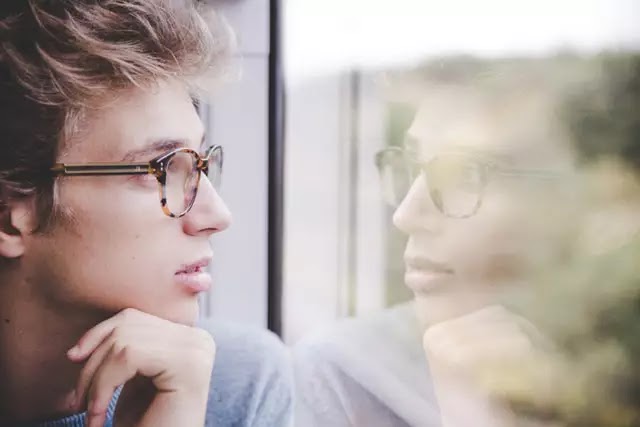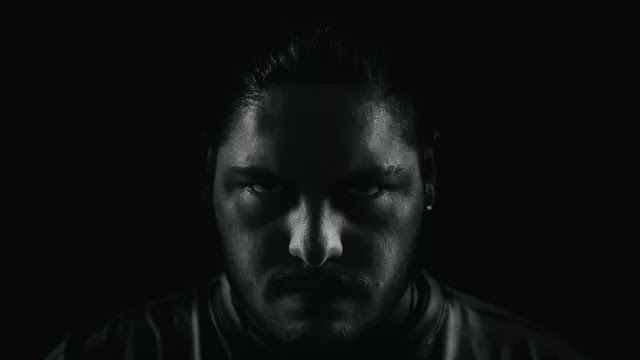You've Never Actually Seen Your Real Face: Your Mirror and Photos are Lying to You, Here's Why It Matters
The Psychology of Mirror and Selfies Perception
Here is the truth no one tells you:
You have never seen your true self as exactly as you physically appear. Your pictures, and your image from the mirror are just reflections of you not real you. What you think you look like is just a representation of you, the best you can physically see.
Why You Don't Look Like You Appear in Mirror and Photos
When light interacts with an object, it is either reflected or refracted. Both processes of object-light interaction are optic behaviors that change the way we see images.
- Reflection is what happens when light bounces off a surface like a mirror.
- Refraction occurs when light passes through transparent material such as water or glass. Reflection and refraction do not only bend light, they also distort the resulting image of what you can see.
For instance, someone looking directly at you is only able to see you because light has reflected your image back into their eyes. What people see as your image is still your reflection not your very essence. Therefore, how people see you is influenced by factors such as lightning, angles and their personal perception/sentiment.
"The lens doesn't lie but it distorts"
A Tip on Special Relativity
One of the ways to prove that what we see might be different from exactly what it is is when we consider the Theory of Special Relativity by Sir Albert Einstein. According to special relativity, in our universe, length and time are not absolute but perceived differently by observers moving relatively to each other. Although this theory is mostly applied to objects at the speed of light, it still has some effects in our observable environment, such as in magnetism. However, one of the clauses in special relativity is that "moving objects are contracted to the direction of motion. In other words, when an object moves relative to you, it takes less space. Therefore, someone moving relative to you, say passing by in an open car, may appear slimmer than they actually appear. We also noted how observers define the physical reality in one of our article, how thoughts influence reality.
Mirrors Reflection, Lens Refraction, and Camera Quality Cause Image Distortions
When you look in the mirror, what you are seeing is double reflection of your image. Just like making a photocopy from an already photocopied material. The outcome is faded image influenced by several factors including the characteristic of the mirror, or whatever object your image appears.
The camera is not different. The nature of the camera can either diminish or enhance your image quality, making you look more or less attractive than in real life. This also applies to lenses. Most lens magnifies, diminishes or cause some level of distortion to images quality or size.
Mirror image inversion attribute
Images you see in mirror are inverted images that your brain adjusts and gets used to overtime. You can confirm this by writing on a paper and reading your writing through the mirror. Letters appear inverted in mirrors, same applies to other mirror images.
The Psychology of Mirror and Selfies Perception: How this affects our daily lives
Your brain adjusts over time to accept, become familiar, and feel comfortable with the most available picture of you it sees frequently. This includes your mirror images and photos or selfies. This is why you may feel awkward when you see an inverted video of yourself, and why you get used to TikTok and studio edited photos and feel bad over raw ones. This experience is associated with three psychological phenomena.
Psychological Factors that Influence Self Perception by Image Distortion
- Neuroplasticity: This is the brain's ability to change, adapt and reorganize itself throughout lifetime. It is the reason we change our beliefs, ideology, and sometimes become a very different individual based on exposure, learning, injury, experience, and/or environment. For example, before the rise of colored camera, black and white photos were generally accepted, even when they did not give the true image of the individual. The age of social media is here, and it becomes so hard for most people to accept raw camera photos without filters and image enhancers. The adaptation is so popular that even camera and mobile phone industries do not work towards creating realistic camera, but ones that enhance and beautify images.
- Mere exposure effect: This is a psychological phenomenon where people develop interest and preference for things they are repeated exposed to, even if they did not like them at the first experience. This phenomenon was highly studied by psychologist Robert Zajonc in the 1960s. According to Zajonc, "Familiarity breeds liking". In this context, the image of yourself that you keep seeing and accept can become how you define your personality and appearance.
- Perceptual adaptation: The brain does not just receive what you see, it adjusts and reshapes your reality to match what you are already used to. In short, perceptual adaptation is the brain ability to recalibrate what it hears, feels or sees to make sense out of the distorted or unfamiliar information. Images in mirror are inverted; the brain adjust to it overtime.
What is the main point?
The point is that the image you see of you are not truly you. Your perception of yourself is shaped by imperfect reflections not the reality.
- You might be more beautiful than you think.
- Or your confidence on your beauty may be built on illusions.
- Others might see you more accurately than you do yourself. Yet, their vision still doesn't represent you accurately. It is flawed.
Light and optical illusions result in visual distortion that either makes you feel better than you actually appear or uglier than you think. We are walking around with distorted self-images, and those distortions can negatively affect our self-worth.
This misperception of what we truly look like leads many people to feel insecure, lose self-confidence, and develop inferiority complex.
"Your reflection is an illusion, shaped by light not reality. You are more than any mirror can show."
We have people around us who are already very beautiful destroying themselves by turning to self-editing. They become obsessed with excessive image editing, filters, or even cosmetic procedures. Unfortunately, these individuals forget chasing an ideal image that they themselves can never truly see. This becomes an endless loop because the more you chase perfection, the less satisfied you are bound to become. It is like investing into the vanity of wanting to look better, but you can never see better.
Conclusion
It is better to accept who you are, what you represent and your uniqueness that you can never see, even in the mirror. Humility and self-acceptance are key to peace of mind, lasting happiness and high self-esteem.
Remember, what you see is not the full picture, and that's okay. Do not let the distorted views of yourself affect your emotion and daily life. You are more beautiful than any mirror, camera, or photo, can ever display.











Love this my dearest ❤️more wisdom ❤️